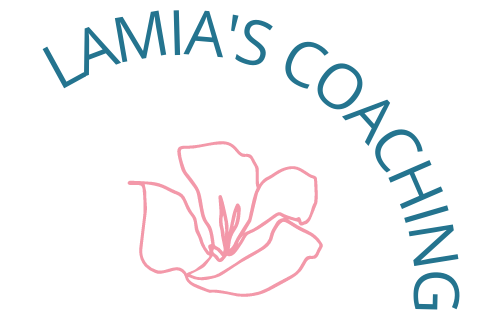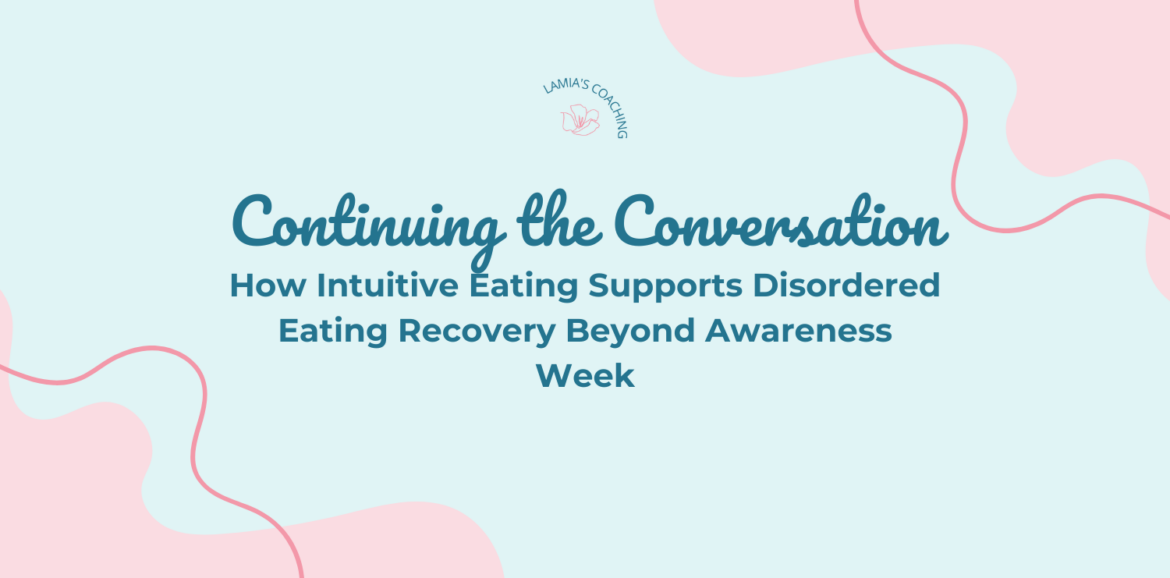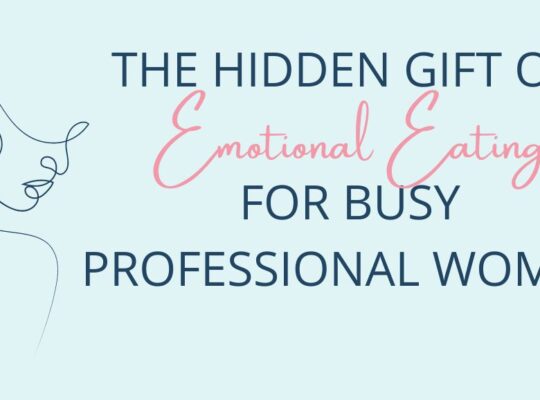Even if the Eating Disorder Awareness Week is over, the conversations and insights that were discussed during this time must not fade into silence.
This week, a timestamp in the calendar, serves not just as a period of heightened awareness but as a launchpad for ongoing dialogue, education, and action against eating disorders. Its legacy is a reminder that the journey toward understanding and healing is a continuous one, stretching far beyond the confines of a designated week.
What is Eating Disorder Awareness Week?
Eating Disorder Awareness Week is an annual campaign designed to increase awareness about eating disorders, spotlighting the realities of the conditions, promoting recovery, and changing the misconceptions surrounding these serious mental health issues. Held in the last week of February (February 26 – March 3, 2024), it’s a time dedicated to education, sharing resources, and offering support to those affected.
Mainly this week is an action to break the stigma, spread hope, and highlight the necessity for accessible, compassionate care for all.
Understanding the Spectrum of Eating Behaviors
Let’s start with understanding eating behaviors.
Eating behaviors exist on a wide spectrum, from healthy/intuitive eating, disordered eating to clinically diagnosed eating disorders at the other.
In the middle lies a range of disordered eating behaviors—patterns that may not meet the full criteria for an eating disorder diagnosis but still significantly impact an individual’s health and happiness.
Recognizing this spectrum is crucial in understanding that issues with food and body image can affect anyone, in various degrees, and that each person’s experience is valid and deserving of attention.

The Onset of Eating Disorders
Eating disorders typically begin with an obsession with food, body weight, and shape. This preoccupation can stem from a variety of sources. Here are some examples (but not limited to):
- Biological Factors: Genetics can play a role, making some individuals more susceptible to developing an eating disorder.
- Psychological Influences: Personality traits like perfectionism, neuroticism, and impulsivity are often associated with a higher risk.
- Cultural and Social Pressures: Media portrayal of ideal body types and societal beauty standards can fuel dissatisfaction and unhealthy behaviors.
- Life Transitions and Stress: Events such as puberty, starting a new school, or a family breakup can act as triggers.
Before we delve deeper, let’s set the stage with some key facts that highlight the scope and seriousness of eating disorders:
- Prevalence: Globally, eating disorders affect at least 9% of the population.
- Gender Gap: While traditionally more prevalent among women, eating disorders are increasingly recognized in men and non-binary individuals.
- Mortality Rate: Eating disorders have the highest mortality rate of any mental health disorder.
- Youth Impact: 95% of those with eating disorders are between the ages of 12 and 25.
- Co-Occurring Conditions: Eating disorders often occur alongside other mental health issues, such as anxiety disorders, depression, and substance abuse.
A key part of continuing the dialogue from Eating Disorder Awareness Week is challenging the misconceptions surrounding these disorders. They are not a lifestyle choice but serious and potentially life-threatening conditions that require understanding, compassion, and medical treatment.
Through the integration of these facts and explanations into our broader understanding of eating disorders, we can begin to peel back the layers of complexity and offer more targeted support and care to those in need.
Supporting People with Eating Disorders
If someone you care about is struggling with an eating disorder, understanding how to offer support can be vital for their path to recovery. Here’s how you can be there for them:
Create a Safe Space for Open Communication: Approach the topic with sensitivity and without judgment. Encourage open conversations where they feel safe to share their feelings and experiences.
Educate Yourself: Knowledge about eating disorders can help you understand what your loved one is facing. It equips you to recognize symptoms, understand the recovery process, and debunk common myths. This includes familiarizing yourself with the principles of Intuitive Eating (IE) and Health at Every Size® (HAES), which can offer alternative perspectives on health and well-being that don’t focus solely on weight. Understanding IE and HAES can help challenge the diet-centric views and weight stigma that often contribute to eating disorders, enabling you to support your loved one with a more inclusive and compassionate approach.
Encourage Professional Help: Gently suggest the importance of professional guidance. Offer to help find therapists, nutritionists, or support groups, and if they’re open to it, accompany them to appointments for support.
Offer Compassionate Support: Provide emotional support without trying to fix their problems. Be present, listen actively, and validate their emotions.
Avoid Triggers: Steer clear of discussing weight, diets, or appearance. Focus on inner qualities and the person’s strengths and achievements.
Model a Healthy Relationship with Food and Body Image: Demonstrate a neutral approach to food and body image yourself. Show that all foods can be part of a balanced lifestyle and be kind to your own body, setting an example that health comes in various shapes and sizes.
Set Boundaries: Recognize and communicate your own limits. You can’t take responsibility for their recovery, but you can offer your support.
Self-Care for Supporters: Supporting someone with an eating disorder can be emotionally taxing. Make sure to take care of your own emotional and physical well-being.
Commit to the Long Haul: Remember that recovery is a long process; offer ongoing support and patience.
Supporting someone with an eating disorder is challenging, but with the right tools and understanding, you can provide meaningful assistance that can help your loved one on their journey to recovery.
The Role of Intuitive Eating
Intuitive Eating emerges as a powerful antidote to the pervasive diet culture that often fuels disordered eating. It’s a compassionate, self-led approach grounded in responding to your body’s natural hunger and fullness cues rather than external diet rules and restrictions. Intuitive Eating encourages a harmonious relationship with food, promoting body respect, rejecting the diet mentality, and finding joy in eating and movement. It’s about tuning in to your body’s needs and allowing them to guide your eating choices.
Here’s how embracing Intuitive Eating principles can support those on the spectrum towards a healthier relationship with food:
- Reject the Diet Mentality: By letting go of the endless cycle of diets, you begin to repair your relationship with food and your body.
- Honor Your Hunger: Learning to recognize and respond to your body’s signals helps prevent overeating and the emotional distress associated with hunger.
- Seek Satisfaction: Discovering the joy in eating leads to a more fulfilling experience with food. Embracing satisfaction can transform eating from a source of anxiety to one of enjoyment, helping to break the cycle of chronic dieting and negative body image.
- Make Peace with Food: Giving yourself unconditional permission to eat reduces the guilt and stress associated with eating.
- Challenge the Food Police: Silencing the internal and external voices that dictate what you should or shouldn’t eat empowers you to trust your own body.
By embracing the principles of Intuitive Eating, we cultivate not just a positive relationship with food and our bodies but also illuminate a path toward enduring well-being and the kind of freedom in eating that everyone is entitled to experience.
Check out this free guide on intuitive eating.
Moving Beyond Eating Disorder Awareness Week
The conclusion of Eating Disorder Awareness Week is not an end but a milestone in the ongoing mission to support those affected by eating disorders. It’s a call to carry forward the momentum, to continue learning, sharing, and advocating for change. Awareness is a powerful tool, but its true value comes from the actions it inspires—actions towards more empathetic, informed, and inclusive support for everyone on the eating behavior spectrum.
Who I Am and My Role in This Journey
I am Lamia, a non diet coach and certified intuitive eating counselor. My coaching is dedicated to guiding those struggling with disordered eating towards a place of peace and freedom with food. While eating disorders require specialized medical and psychological treatment, my focus lies within the realm of disordered eating—helping you navigate the challenging waters of food anxiety, body dissatisfaction, and the harmful impacts of diet culture.
My mission is to empower you on your journey to rediscovering the joy of eating and to foster a positive relationship with your body, free from the constraints of rigid dietary rules. Through the principles of Intuitive Eating, I aim to help you listen to and trust your body again. However, it’s important to recognize the boundary of my expertise; for those facing clinical eating disorders, I advocate seeking specialized medical support, as this goes beyond my zone of genius and expertise. Together, let’s embrace the path to food freedom, armed with knowledge, compassion, and a commitment to change.





